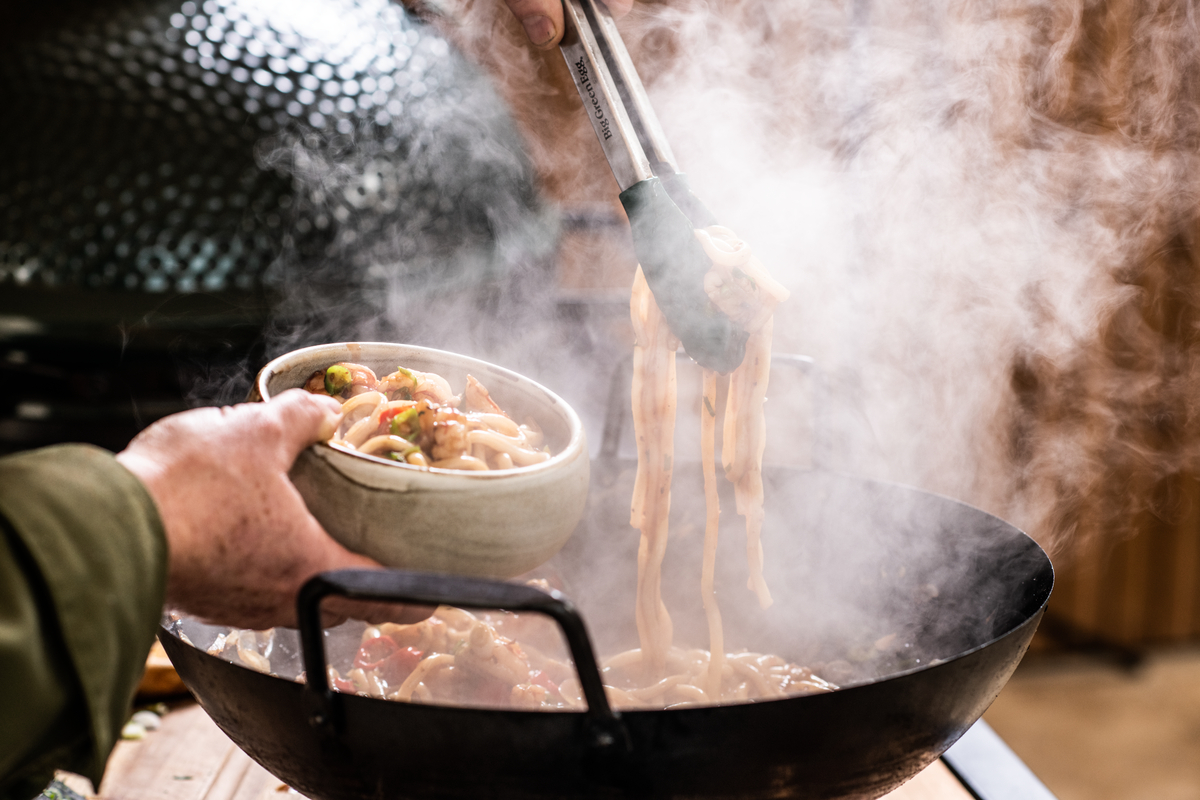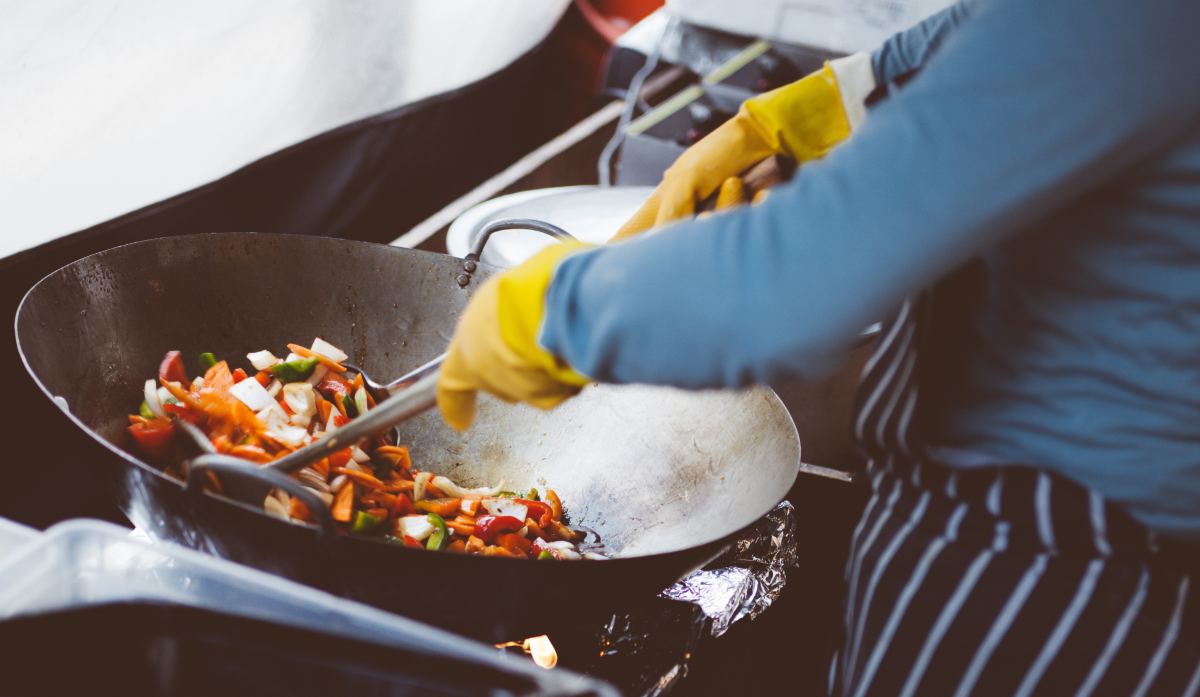Mastering the Art: How to Clean a Wok with a Bamboo Brush
Written By James MorganBarbecue enthusiasts know that the right tools and techniques can make a significant difference in the kitchen. When it comes to wok cooking, maintaining your wok in pristine condition is key to achieving those authentic flavors and textures. But how exactly do you clean a wok effectively, especially with a bamboo brush? This guide will provide you with all the answers you need.
A wok is a versatile and essential tool in any barbecue lover's arsenal. It's perfect for stir-frying, deep-frying, steaming, and even smoking. However, to keep your wok performing at its best, you must master the art of cleaning it. The practice of using a bamboo brush to clean a wok is not only traditional but also highly effective in preserving the wok's seasoning and longevity.

Why Use a Bamboo Brush?
Before diving into the cleaning process, it's essential to understand why a bamboo brush is the preferred tool for cleaning woks. Unlike abrasive sponges or metal brushes, a bamboo brush is gentle on the wok's surface. It helps remove food particles without stripping away the seasoning layer, which is crucial for maintaining the non-stick properties of your wok.
The gentle yet effective nature of bamboo brushes stands out. These brushes are designed to be sturdy yet soft enough to keep the wok's patina intact. The natural fibers of the bamboo brush exfoliate without scratching, making it perfect for the seasoned surface of a wok.

Step-by-Step Guide on How to Clean a Wok with a Bamboo Brush
Step 1: Prepare the Wok
Before you start cleaning, ensure your wok has cooled down. Cleaning a hot wok can cause warping or damage to the brush. Once the wok is at room temperature, you can proceed to the next step. If you have just finished cooking, it's a good practice to rinse the wok with warm water to remove any immediate residue.
Step 2: Use Warm Water
Fill your sink or a large basin with warm water. Avoid using soap, as it can strip the seasoning off your wok. Instead, rely on the bamboo brush and warm water to do the job.
Step 3: Scrub with the Bamboo Brush
Dip the bamboo brush in the warm water and gently scrub the wok's surface. Focus on areas where food particles might be stuck, but do so gently. The goal is to remove the debris without harming the seasoning. Rotate the wok as you scrub to ensure all areas are cleaned equally.
Step 4: Rinse Thoroughly
Once you have scrubbed away the food particles, rinse the wok thoroughly with warm water. Make sure there is no remaining debris or residue left on the surface.
Step 5: Dry the Wok Immediately
Drying your wok promptly is crucial. Use a clean towel to wipe the wok dry immediately after rinsing. Any leftover moisture can lead to rust, which will damage the wok over time. After towel-drying, place the wok on a stove over low heat for a few minutes to ensure it is completely dry.

Maintaining the Seasoning
Seasoning your wok is an ongoing process. Each time you cook with oil, the seasoning layer improves. However, cleaning the wok should not interfere with this. Using a bamboo brush helps maintain this seasoning. If you notice any unevenness or dull spots in the seasoning, you can re-season the wok by applying a thin layer of oil and heating it on the stove.

Common Mistakes to Avoid
Even seasoned barbecue enthusiasts can make mistakes when cleaning their woks. Here are some common pitfalls to avoid:
- Avoid using soap: Soap can strip away the seasoning, leaving your wok vulnerable to rust.
- Don't use abrasive pads: Abrasive materials can scratch the wok's surface, damaging the seasoning.
- Never soak your wok: Extended exposure to water can cause rust.
- Avoid high heat: Overheating while drying can warp the wok.
Additional Tips for Barbecue Enthusiasts
If you're passionate about barbecue and often use your wok on the grill, here are some additional tips to keep it in top condition:
- Use a wok ring: A wok ring can help stabilize the wok on the grill, making it easier to cook and clean.
- Preheat properly: Ensure your wok is preheated adequately before adding food. This helps in even cooking and reduces food sticking to the surface.
- Season regularly: Regular seasoning helps maintain the non-stick properties and extends the lifespan of your wok.
FAQs About Cleaning a Wok with a Bamboo Brush
Can I use soap on my wok?
It's best to avoid using soap as it can strip the seasoning off your wok. Warm water and a bamboo brush are usually sufficient for cleaning.
How often should I season my wok?
Regular seasoning is essential for maintaining the non-stick properties of your wok. You should season it every few uses or whenever you notice unevenness in the seasoning.
Can I use a bamboo brush on other cookware?
Yes, bamboo brushes are versatile and can be used on other types of cookware. However, they're particularly effective for cleaning woks without damaging their seasoning.
For more detailed guidance on wok maintenance and cooking, visit this comprehensive Wok Guide or explore more articles from Grilling4All.
As an Amazon Associate, I earn from qualifying purchases.



